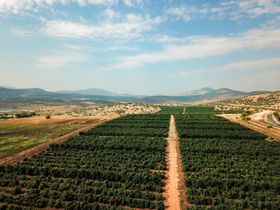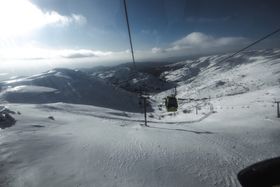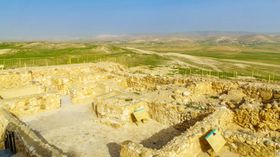How Mount Moriah Became Mount Zion
We look at Mount Zion in the Bible, where Mount Moriah is located today, and how the Temple Mount fits in.
Published March 25, 2022.
Mount Moriah (or Moriyya in Hebrew) is situated between Kidron Valley and Hagai Valley in Jerusalem, just west of the Mount of Olives. This is where the amazing Temple Mount is located.
Is Moriah and Zion the Same?
Zion is the highest point in Jerusalem. In biblical times, the two peaks were separated by the Tyropean Valley (also known as the Valley of the Cheesemakers), but over time the valley has been mostly filled and the peaks look as if they are one landmass.
Things are further confused by the fact that often the word "Zion" in the Bible referred to a wider area (i.e., the city, not only the peak of Zion). Zion was interchangeable with the "City of David".
Mount Moriah was the place where Abraham almost sacrificed his son. A famous Bible quote is, "On the mount of the Lord it shall be provided". And this is what happened. While Abraham held a knife to Isaac's throat and was about to kill him, an angel called out and stopped him, and provided a ram instead.
Why Is It Called Mount Zion?
The name is a pre-Israelite Canaanite name referring to the hill upon which Jerusalem was built (and then later used to reference the city).
However, these days, Mount Zion refers to the area of both "peaks".
What Does Zion Symbolize?
Mount Zion, if we look at it as a separate hill, is the place where God always welcomed His followers with open arms. Numerous important events in the Bible took place there (including the Last Supper) that signify a movement closer to God, even in the literal sense.
These are just two of the important holy mountains in Israel.
Related Articles

Marie-Claire De Villiers
The Top Golan Heights Wineries to Taste the Best Israeli Wine
Related Posts
Alice Bassett
Was Jesus Crucified on Mount Moriah?
Daniel Goodman
Mountains of the Bible: Which Should You Visit?
Marie-Claire De Villiers
Mount Zion and Its Biblical Significance
Marie-Claire De Villiers
Who Was Crucified Next to Jesus?
Marie-Claire De Villiers





